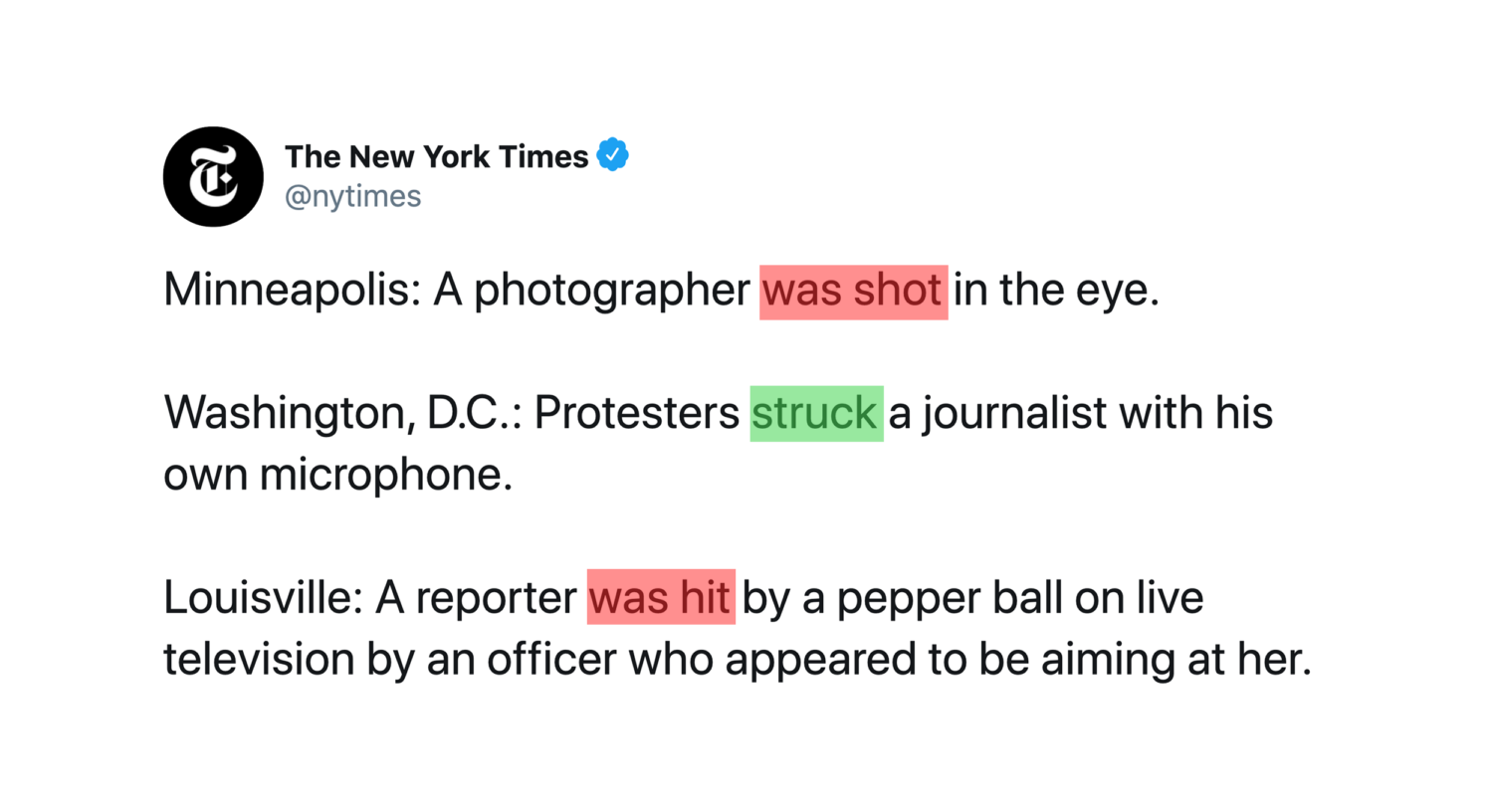The Church of Jesus Christ of Latter-day Saints released this week an “Official Statement on the United States Congress Respect for Marriage Act,” which (1) affirmed its teaching on marriage and the family, (2) expressed gratitude that religious liberty was being protected in new federal legislation on same-sex marriage, and (3) affirmed that such balanced cooperation over otherwise strongly contested rights was “the way forward” on these kinds of difficult matters.
The statement ended, “As we work together to preserve the principles and practices of religious freedom together with the rights of LGBTQ individuals, much can be accomplished to heal relationships and foster greater understanding.”
To read the actual statement, you might come away thinking the Church was wanting to affirm its commitment to its classic teachings on the family, hail a willingness among bipartisan legislators to protect religious liberty, and raise its voice on behalf of peaceful cooperation between differences.
But a very different message emerged in reporting and public commentary on the four-sentence statement.
“A historic shift is underway!” Rather than highlighting the Church’s public affirmation of its long-standing efforts to defend covenant marriage—by, in this case, protecting religious freedom alongside LGBT+ legislation—headline articles all across the nation proclaimed that the Church “voices support for same-sex marriage law.”
Bryan Pietsch writing for the Washington Post, called the church statement “a marked shift from decades of attacks on LGBTQ rights” and “perhaps the clearest declaration of support yet on same-sex marriage from The Church of Jesus Christ of Latter-day Saints.”
AP Writer Sam Metz called the statement “the church’s latest step to stake out a more welcoming stance toward the LGBTQ community while holding firm to its belief that same-sex relationships are sinful.” Troy Williams, the executive director of Equality Utah, was quoted as saying it was “thrilling” to see the Church part of the coalition in support of the legislation.
Do these commentators really believe they are witnessing incremental shifting in teachings from the Church of Jesus Christ?
Tamarra Kemsley and Peggy Fletcher Stack quote openly queer Utah legislator Sen. Derek Kitchen, D-Salt Lake City, who portrayed the Church’s announcement as a watershed, historic moment—“a long time coming”—noting, “I applaud their evolution on this subject.” They also quote Allison Dayton as asserting the Church’s message is “huge” for the way it “answers, once and for all, the question, ‘Can members of the church support same-sex marriage?’” (she enthusiastically hints “yes”).
The Post journalist goes on to portray the statement as part of a genre of indicators that a fundamental doctrinal shift is underway—pointing to church support for state anti-discrimination legislation and a 2019 reversal of a policy (that was widely misunderstood due to activist disinformation campaigns).
Metz suggested the Church’s “public stance” was “a stark contrast” from its efforts in California 14 years prior in support of California’s Prop. 8. After likewise noting the strong Church backing of California’s Proposition 8 in 2008, Pietsch quoted Taylor Petrey as suggesting a dramatic sea change was being witnessed—what he called the Church’s “shift to supporting same-sex marriage as a legal matter,” reflecting in his judgment “a reversal of decades of official policy and teaching, though it reflects the direction that the general membership of the Church has been trending over the past decade.” Petrey elsewhere called the Church’s statement “a dramatic reversal of previous teachings.”
In a heartening glimpse that let’s-hear-both-sides journalism hasn’t completely died yet, the journalist immediately contrasts Petrey’s statement with the Church’s own website that affirms while the law may evolve, any such changes “do not, indeed cannot, change the moral law that God has established.”
What’s really going on? Given well over a century of consistent statements about the doctrine on the family—and despite ongoing insistence up to this very week’s statement that church teaching “related to marriage between a man and a woman … will remain unchanged,” the conversation this week has left many people confused.
That’s not because the church statement was unclear, however. It’s because reporting about the statement was clearly intended to send another message outlined above. Despite these consistent statements and clarifications from the Church, scholars and journalists alike insist that something else is afoot: a historic shifting of attitude and teaching.
But now the honest question—do they really believe that? Amidst all the professed excitement over, “Oh look, the Latter-day Saints are finally coming around,” do these scholars and journalists really believe they are witnessing the minute, incremental shifting in teachings from the Church of Jesus Christ? Could this be one of our own D&C 105 moments?
It goes without saying that the national landscape has shifted considerably on this topic—with it increasingly taken for granted, even among people of faith, that same-sex marriage should be legal. Has the Church likewise “caved in”—some have wondered—and is this statement essentially conceding the issue?
Not in the way these activist journalists and scholars are insisting. For instance, nowhere in the Church’s statement do you see an endorsement of gay marriage as a positive and good thing. Instead, the expressed encouragement of bipartisan legislation seems reflective of the wisdom to navigate the national landscape where the legality of same-sex marriage is no longer an issue—but religious freedom very much is.
A careful reading of the church statement also does not imply they are expressing support for this exact legislation. It seems far more accurate to conclude they are endorsing the principles and approach embodied in the law (which, among other things, gives room for other ideas to be added to improve the legislation).
Those principles are likewise consistent with the work the Church has been doing for nearly a decade on this issue. As Utah State scholar Patrick Mason said about the recent statement, “This seems entirely consistent with what they’ve been doing since 2015” (not to mention, we would add, the many years before when it comes to the importance of religious freedom and the doctrine on the family).
To expand on Mason’s point, the Church’s approach on the national level is consistent with their work on the 2014 Salt Lake City nondiscrimination ordinance, which was announced in a collaborative fashion with quite a bit of fanfare. At that time (8 years ago), the leadership of the Church of Jesus Christ signaled very clearly that this reflected the general principles they would favor going forward. That continued with their more recent work supporting similar legislation in Arizona and their support for the proposed federal legislation known as Fairness for All.
When you compare these prior statements with this more recent statement, you find consistent principles coupled with a desire for compromise and working across sharp ideological divides where agreement can be found.
In short, this is no doctrinal earthquake. What has changed starting in 2014 is not any teaching but rather the point of emphasis. (Although Petrey’s quotes have clearly been used—like his other writings—to advance a narrative of fundamental liberalization underway, in fairness to him, he also clarified in the Tribune interview that the shift most apparent was a pivoting away from opposing the legalization of same-sex marriage to protecting religious freedom—reflecting in this kind of a compromise that reflects a “break with other members of the religious right.”)
Honest questions. It’s true that some other conservative organizations are taking a different approach, some of whom have questions about what the Church is doing. Other faithful members have expressed confusion and, in some cases, even describe feeling betrayed. Some of them made great personal sacrifices, including risking their livelihoods and reputations, when they answered the Church’s call to campaign in favor of Propositions 22 and 8 in California. They may wonder, for instance, how making a statement in support of this legislation squares with decades of teachings and statements in the Church that we are to stand up and be different from the world and that we are to engage the public to promote sound, pro-family principles. Some have referenced the Family Proclamation itself, where the First Presidency and Quorum of the Twelve “call upon responsible citizens and officers of government everywhere to promote those measures designed to maintain and strengthen the family as the fundamental unit of society.”
None of these orthodox voices believe that the Church supports same-sex marriage—nor are they questioning that prophetic guidance continues to lead the Church—but they genuinely wonder why the statement was needed.
Others wonder if the law does enough to protect religious freedom. On one hand, the law does protect religious nonprofits from needing to provide services for the solemnization or celebration of marriage—an open question legally that would be closed by the law firmly on the side of religious freedom. Proponents also argue the bill can’t be used to strip tax-exempt status, clearly another high priority for all faith organizations. On the other hand, additional questions remain about how the law could be used in ways that threaten faith, with Senator Mike Lee’s attempts to add further religious liberty protections rebuffed. Ultimately, longtime supporters of religious freedom have come down on both sides of the question about whether or not this law does enough.
The legal realities of our liberalizing world. The reality is as long as same-sex marriage is already protected by the Supreme Court, we are in a different legal environment, especially when you consider the reasoning the Court used to arrive at the decision—that refusal to grant marriage rights to same-sex couples was due to “animus” and denied these relationships “dignity.”
If the Church doesn’t do anything, the bill is getting passed anyway, but perhaps without the robust religious freedom protections. The Church’s support signals that laws like this, in their estimation, give them enough of what they need—or at least something worth affirming. As the world democratic climate frays, it’s a reasonable question to ask how we can eke out the most protections for the longest time.
Many people also fail to appreciate that if the legislation passes, all the Democrats voting for it will be proudly passing a bill that lets churches and religious nonprofits refuse to participate in gay marriage.
Once again, a central reason some believers are confused is that we’re largely hearing from the loudest voices eager to spin this as another progressive triumph. For instance, from a gay rights perspective, states will now be required to recognize same-sex marriages performed in other states. So anybody could just fly to California to get married and thereby evade their home state’s prohibition. If God will fight our battles, maybe we should let Him pick them too.
Letting God pick our battles. All this being said, people of faith everywhere know there are losing fights that are still worth fighting. There are times to fight to the end and go into the fire, like the Old Testament prophets, and clearly, other times when God leads his people to retreat and preserve their own life and freedom.
But perhaps even harder than fighting a losing battle is being asked to stop fighting. In the early days of the Church, 230 men, women, and children were called to go on a Zion’s camp march with the expectation of a dramatic effort to vindicate fellow Saints who had been expelled from Missouri. When the direction came after three months of marching to stop heading towards the fight (Doctrine and Covenants 105), several were upset because they really did want to fight. Why have you wasted our time? Why were we led to fight, if this was how it would end up? Several people left the Church because they were so upset by this change in strategy and even sued the Church for lost hours of labor at home.
Could this be one of our own D&C 105 moments? An instance where we navigate the same question—Why were we led to fight if this was how it would end up?—with the same faith of many others in that early camp who remained committed to something higher than their own confused feelings. Again, if God will fight our battles, maybe we should let him pick them too.
It’s also worth noting that Latter-day Saints know well in their history what it’s like to be unable to practice their religion because they’re on the wrong side of a losing cultural battle. With it clear the direction the larger American culture is going, this cooperative strategy holds the promise of buying us enough time we can to reach as many people as we can with the message of exaltation.
On that note, let’s be honest about the fact that although the legal battle over gay marriage in the U.S. seems to be largely done, the Church is not giving up the fight historically and culturally. That work still aims centrally at the epic contest to bring to pass the eternal life of each of Heavenly Father’s children.
His kingdom is not of this world. And neither is ours. Our fight for a better world goes on.
The real news. In the end, the news of the day is not that the Church supported a bill involving same-sex marriage. The real news is that people who disagree about two vitally important components, same-sex marriage and religious freedom, are making an effort to come together in cooperative legislation that preserves competing rights. In that, many of us would agree with Clifford Rosky, a professor at the University of Utah’s S.J. Quinney College of Law, who said he was “thrilled to see both parties in Congress and people of all faiths coming together” and to see a willingness on both sides to “put down the weapons of the culture war and focus on what we agree on instead of what we disagree on.”
Those who believe this legislation is a reasonable compromise celebrate what Rosky calls a “milestone” of bipartisan deal-making, which Kemsley and Fletcher Stack note was “made all the more impressive by the fact of its taking place in such a polarized political climate.”
For other Latter-day Saints who consider this bill “anemic” and who don’t see this as a reasonable compromise, we are sympathetic to their concerns. Their own solemn support for this “path forward” will necessarily involve digging deep and doing their best to reconnect with the wisdom in following a prophet’s lead in moments that are challenging.

















